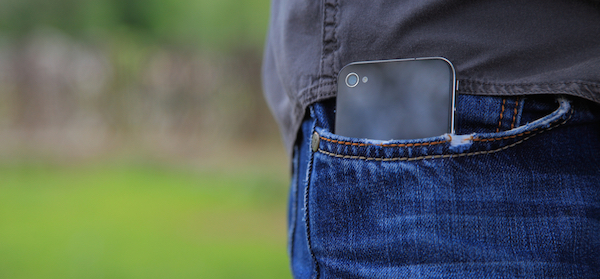Have you ever felt your phone vibrate in your pocket or bag only to check it and discover there are no messages or calls? This phenomenon called ‘phantom vibration syndrome’ supposedly affects nine in 10 people and, according to researchers, is caused by “learned bodily habits”.
Philosopher and Assistant Professor at the Georgia Institute of Technology Dr Robert Rosenberger claims that when people become accustomed to having their phone in their pocket or bag, it eventually becomes “part of their body”. Like wearing glasses, a person forgets about their phone and they can then start to imagine or pre-empt activity coming from the device, even from the smallest sensations.
“People then perceive other sensations, such as movement of clothing of muscle spasms, as vibrations from their mobile, but it’s just a hallucination,” says Dr Rosenberger.
All this, the professor says, is a symptom of an all-too connected society, in which people are anxious about missing a text, phone call or notification. These anxieties stem from the fear that failing to quickly receive and respond to messages will result in missing out on important information.
So what’s the cure for phantom vibration syndrome?
The clear answer is to lessen your dependency your phone so that you’re less anxious about instantly being able to keep in touch with others.
You can do this by:
- Keeping tabs on the amount of time you spend talking to and messaging people
- Turning off notifications from Facebook, Twitter and email
- Setting aside specific time in the day to catch up on digital correspondence, such as an hour in the morning and afternoon
- leaving your phone at home when it isn’t necessary, such as during a walk or when meeting a friend for coffee
- keeping your phone out of the bedroom, so it doesn’t become the first thing for which you reach in the morning and the last thing you check at night.
Have you ever experienced phantom vibration syndrome? Do you have any tips for disconnecting from your phone?
Read more at techspot.com

